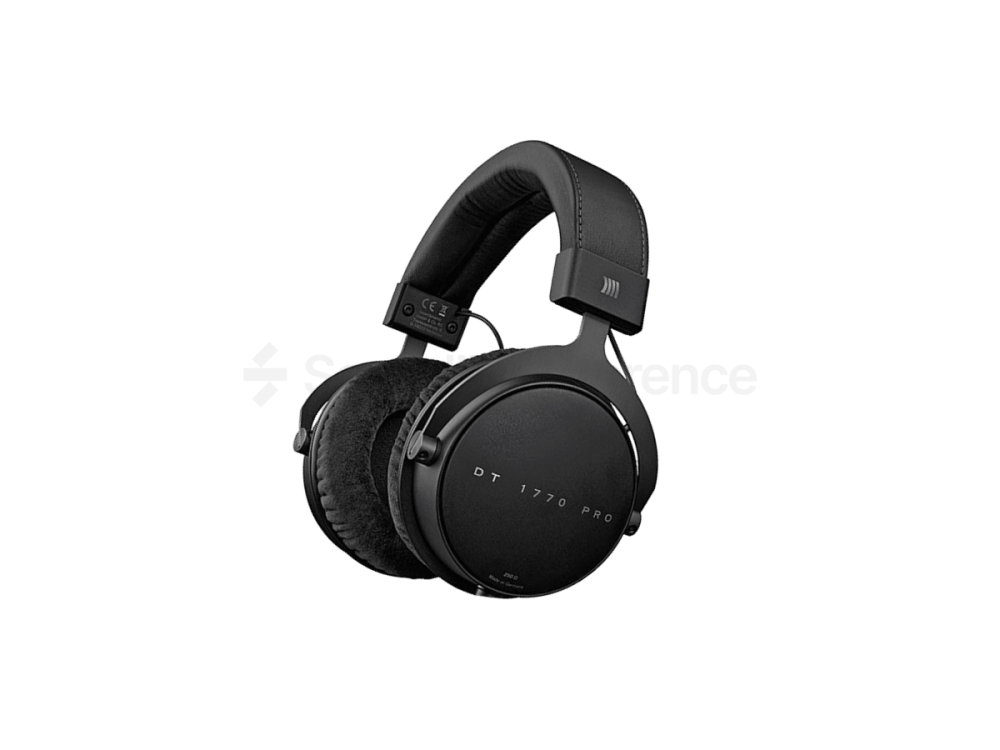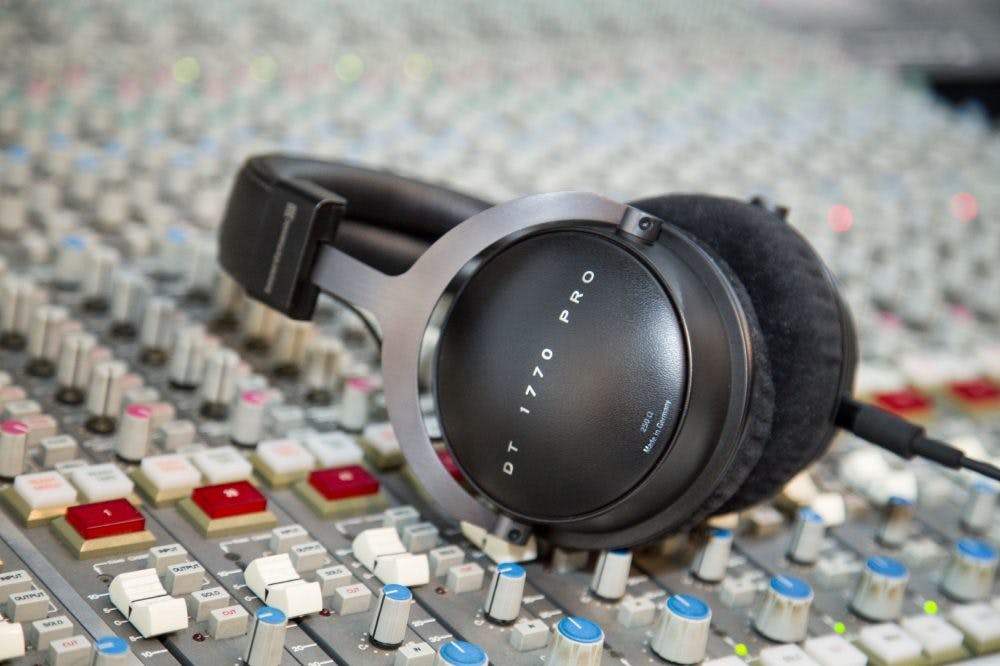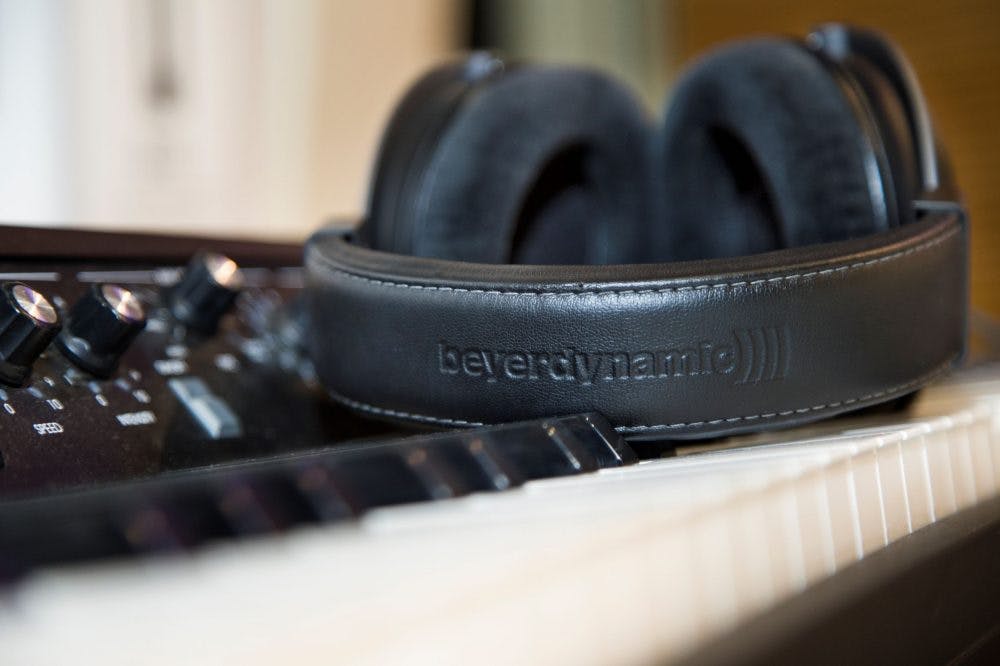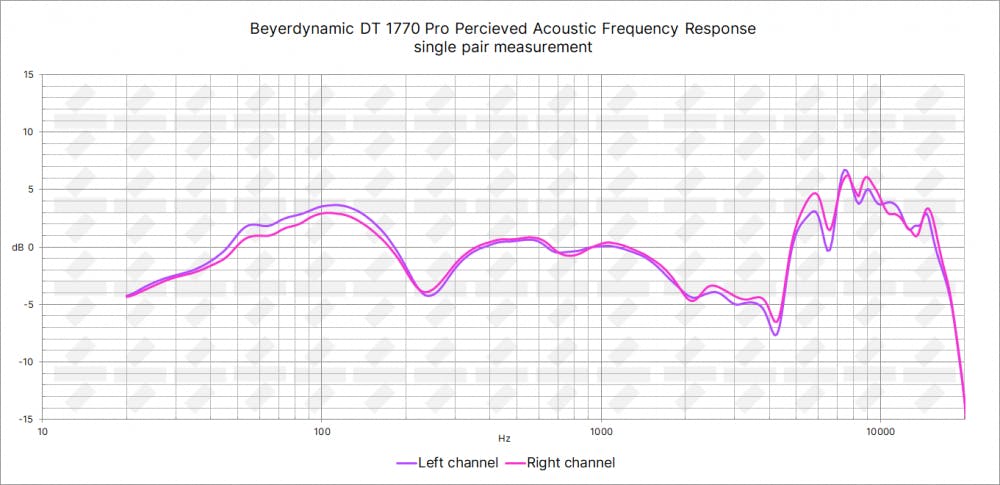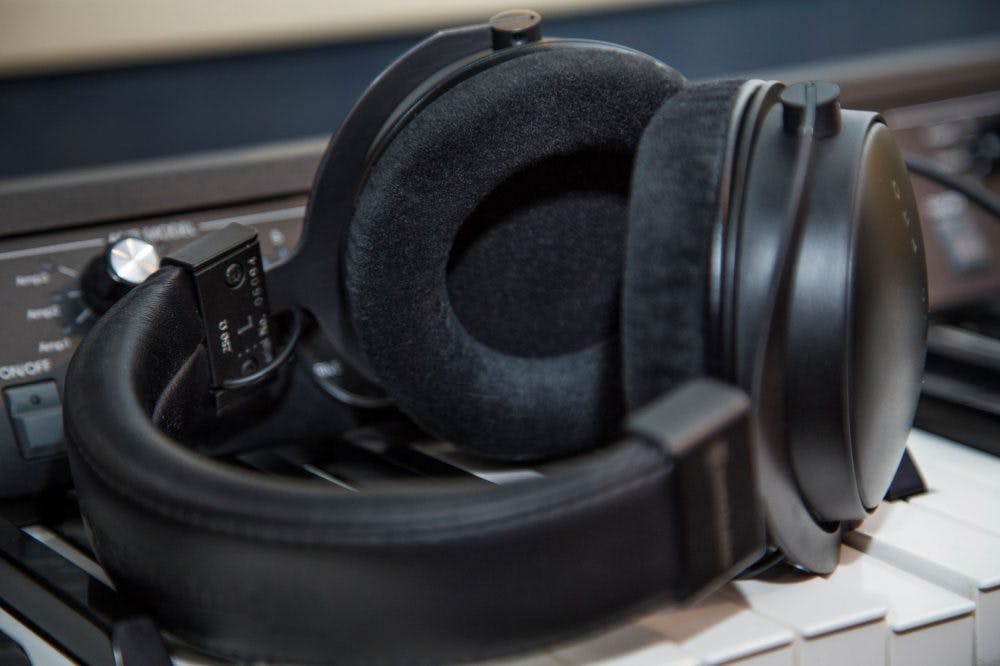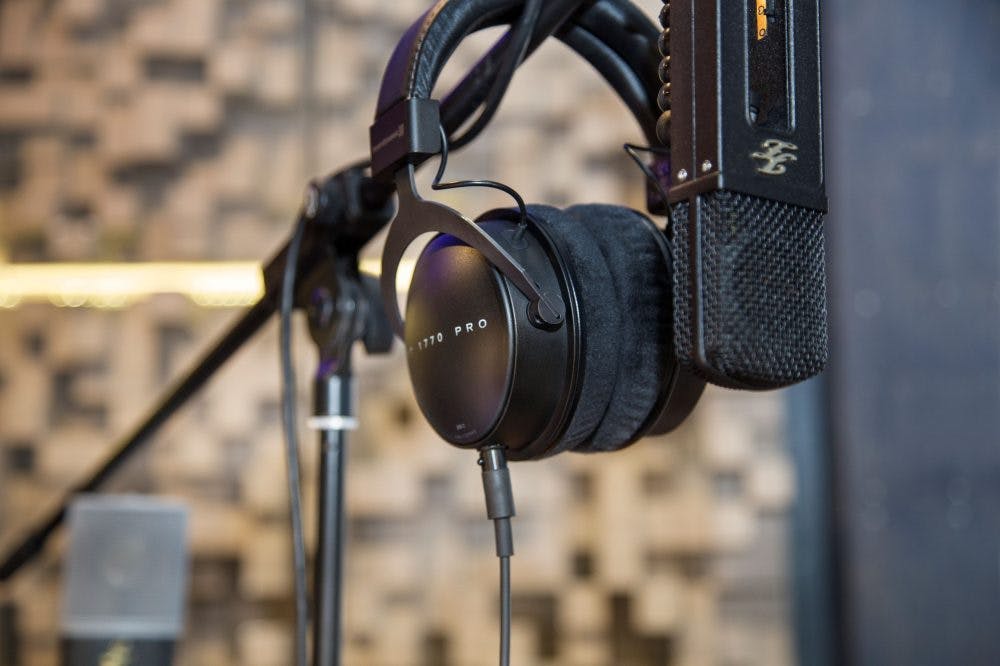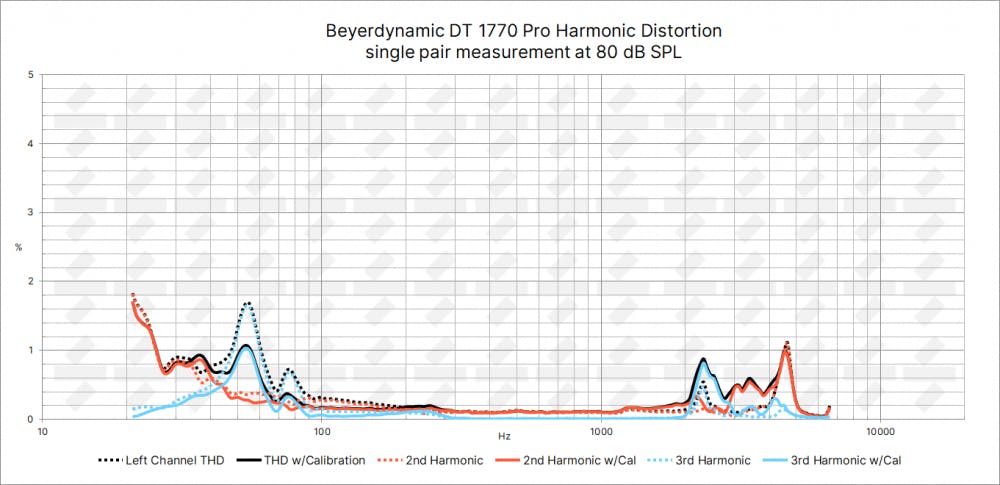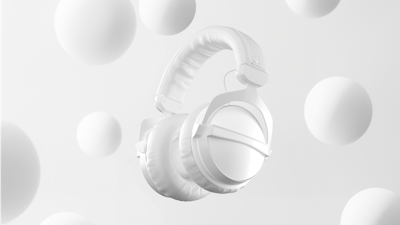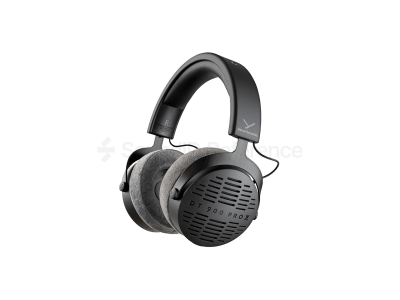Let’s have an in-depth look at Beyerdynamic DT 1770 Pro, the fancy cousin of one of the most successful studio closed-backs, the DT 770 Pro. What exactly do you get for three times the price of DT 770 Pros? How do they compare to other headphones in this segment?
- High quality build
- Good adaptiveness
- Superb low-end extension and performance
- Easily available replacement parts
Pros list with SoundID Reference calibration
- Neutral frequency response
- Pricey
Given its 250Ω impedance, it’s clear that DT 1770 Pros won’t be the loudest headphones when paired with mobile devices, but they are more sensitive than DT 770 Pros and will squeeze a few dB’s more from the same output. Still, it won’t be sufficient for mobile work that requires substantial headroom, even more so when used with calibration.
All of the build flaws of the DT 770 Pro’s are addressed with the DT 1770 Pro’s – the headband adjustment mechanism works flawlessly and is a joy to use, and the cable is now detachable.
Also, the materials are an upgrade and every part now feels great to touch and use. The headband perhaps is straight away the most noticeable departure and now it’s especially thick and covered in gentle leatherette. The ear pads on the other hand feel nearly indistinguishable from DT 770’s, but that’s most certainly not a bad thing as they feel great and are comfortable for extended sessions. The overall level of quality is on par with the rivals in the price segment.
Headphones come with a nice set of accessories and spares – a semi-hard case for storage and transportation, two slightly different sets of ear pads and two mini-XLR cables, a 5 meter long coiled and a 3 meter straight one.
DT 1770 Pro’s are quite far from being the most neutral-sounding closed-backs, but they sure sound fun and complement many genres. The overall shape of the frequency response curve follows the ever-popular “smiley face” pattern with boosted lows and highs, but the low-mid dip at 200Hz further highlights the bass and the dip in high-mids reduces harshness.
It can be very pleasant to work with these headphones until you hear your track on a different playback system where it all of a sudden lacks high frequencies and sounds harsh in the high-mids. However, with calibration, they’re a fine and reliable monitoring tool.
The high frequency response is typical Beyerdynamic and the whole curve follows the same trends as DT 770 Pros, yet when comparing both headphones head to head, the gap is bigger than graphs might suggest. While the calibration erases all the frequency response differences, the sub bass sounds cleaner and more effortless on DT 1770 Pro’s, most likely due to the Tesla driver’s superior distortion performance.
The channels are evenly matched as expected from Beyerdynamic. The differences are negligible and will go unnoticed to a human ear.
As usual with Beyerdynamic full-size over-ears, wearing comfort is very good due to the well-designed contact points and the roomy volume inside the ear pads. Even larger pinnas will be accommodated without putting pressure on them, thus helping users to wear the headphones for longer. If we were to nitpick, they’re noticeably heavier than the lightest rival in this price segment, Shure SRH1540, but weigh about the same as Neumann NDH 20.
DT 1770 Pro’s are quite expensive and go for about €450 in Europe and $600 in the USA. If that’s the money you wish to spend on studio closed-back headphones, your options are rather limited and DT 1770 Pros come on top. Neumann NDH 20 have issues with adaptiveness hurting their accuracy and Shure SRH1540 has a relatively high 3rd harmonic distortion in the bass range.
The DT 1770 Pro THD graph is untypical for a recent premium headphone model. The figures overall are low, but usually, in the range above 100Hz the values are near zero, however, it’s not the case here. The other weird thing is the 3rd harmonic distortion spike at about 50Hz. Yet none of this translates to the real-world listening experience as audible distortion or artefacts.
How accurate and consistent is the correction effect among different listeners?As with all Beyerdynamic headphones that share dimensions with the DT 1770 Pro, it’s best to try them on and check if the bass response is not suspiciously weak when compared to other headphones. If it is, that means that ear pads fail to deliver the appropriate seal in your case and you’ll be better off choosing another manufacturer. As long as the user hasn’t severe seal issues, adaptiveness is rather good, and DT 1770 Pro’s will deliver consistent frequency response to a wide range of listeners.
How much do they differ pair to pair in terms of frequency response?In typical Beyerdynamic fashion, manufacturing consistency is held up to a high standard. This means that the model average calibration profile should deliver very accurate sound.
Rating
Conclusion
Beyerdynamic DT 1770 Pros aren’t cheap headphones, but there are no more affordable headphones that can match their build and bass performance. They are quite heavily colored though, so if your setup doesn’t allow to run calibration, Shure SRH1540s are a better option where neutral sound is required. At the end of the day though, it’s not like by using them your mixes and productions will be three times better than if you’d opt for DT 770 Pros but it’s likely that you’ll enjoy the process more and will make a more accurate judgment on the low-end of your work.
To calibrate your DT 1770 Pros, purchase headphone calibration software SoundID Reference or send them in for individual calibration.
For more information about beyerdynamic headphones, continue reading our reviews – DT 240 Pro, DT 770 Pro, DT 900 Pro X, DT 880 Pro, and DT 990 Pro.
Final Rating
Calibration Enabled
Calibration
